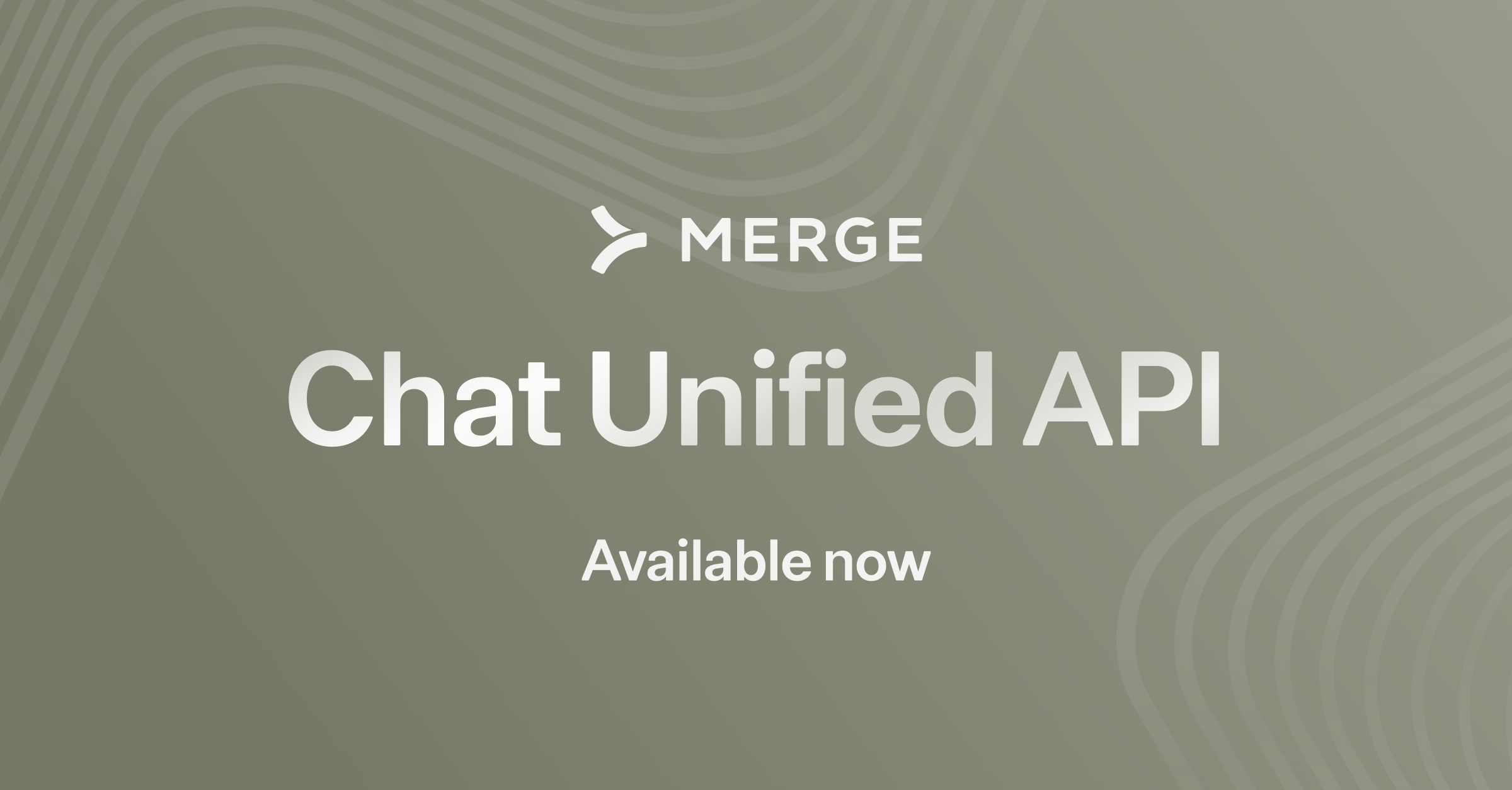3 Composio alternatives to consider in 2026
.png)
Composio allows companies to securely connect their AI agents with thousands of tools, quickly. Composio also lets you observe each tool call to detect and address unauthorized activities.
To help you determine whether Composio is the right solution for supporting your AI agents, we’ll compare it to its biggest competitors.
Merge
Merge Agent Handler also allows you to securely connect your AI agents to thousands of tools.

Key features:
- Connector Studio: Use dozens of pre-built MCP connectors and generate any with AI by simply providing a GitHub repo or API documentation URL
- Tool Packs: Create a ready-to-use bundle of connectors and tools for a specific use case
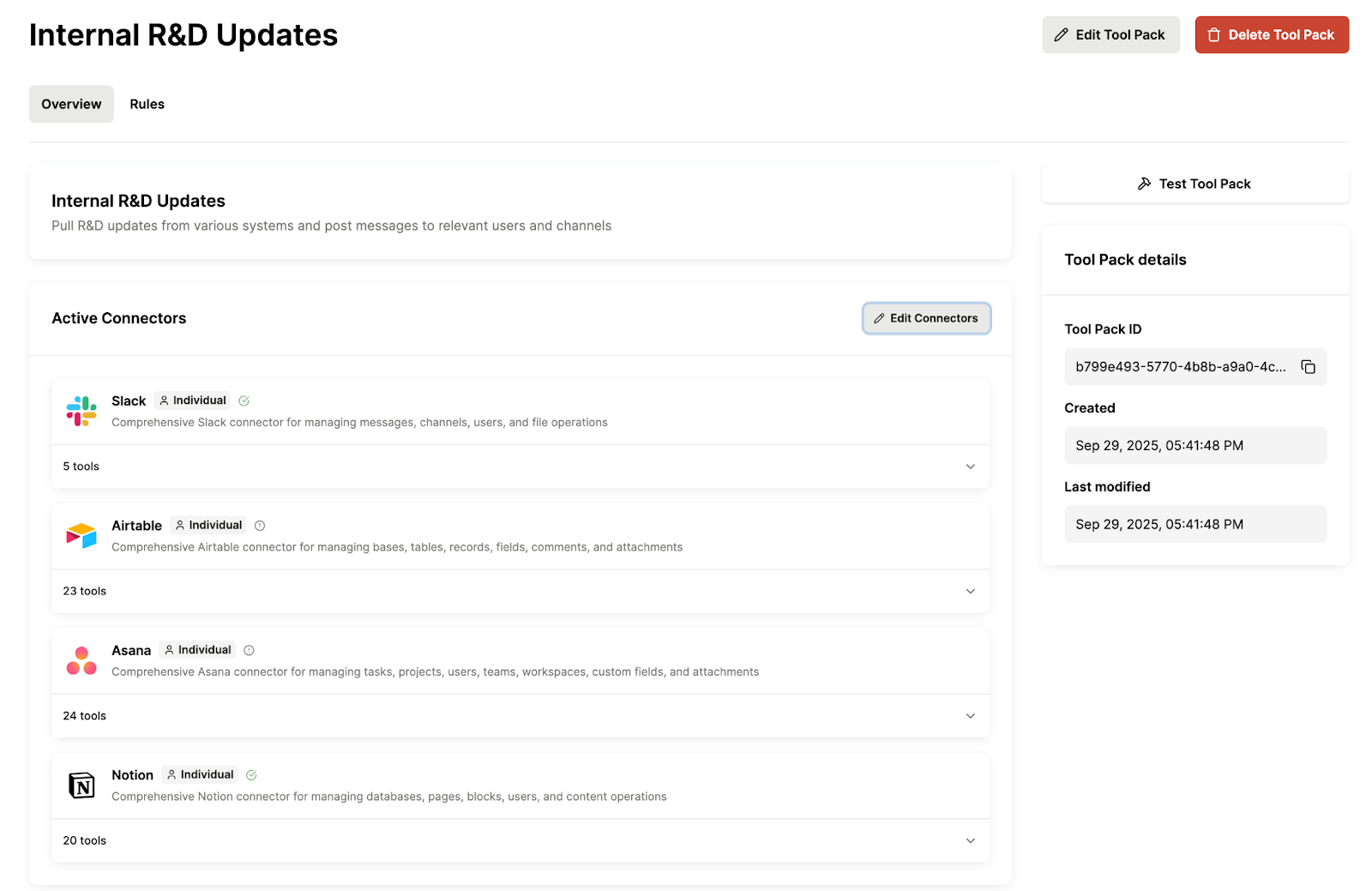
- Fully-searchable logs: Track every tool call your agents make and get the context necessary to troubleshoot any issues, such as a tool call's status error, the date the call was made, the Tool Pack it’s associated with, and more
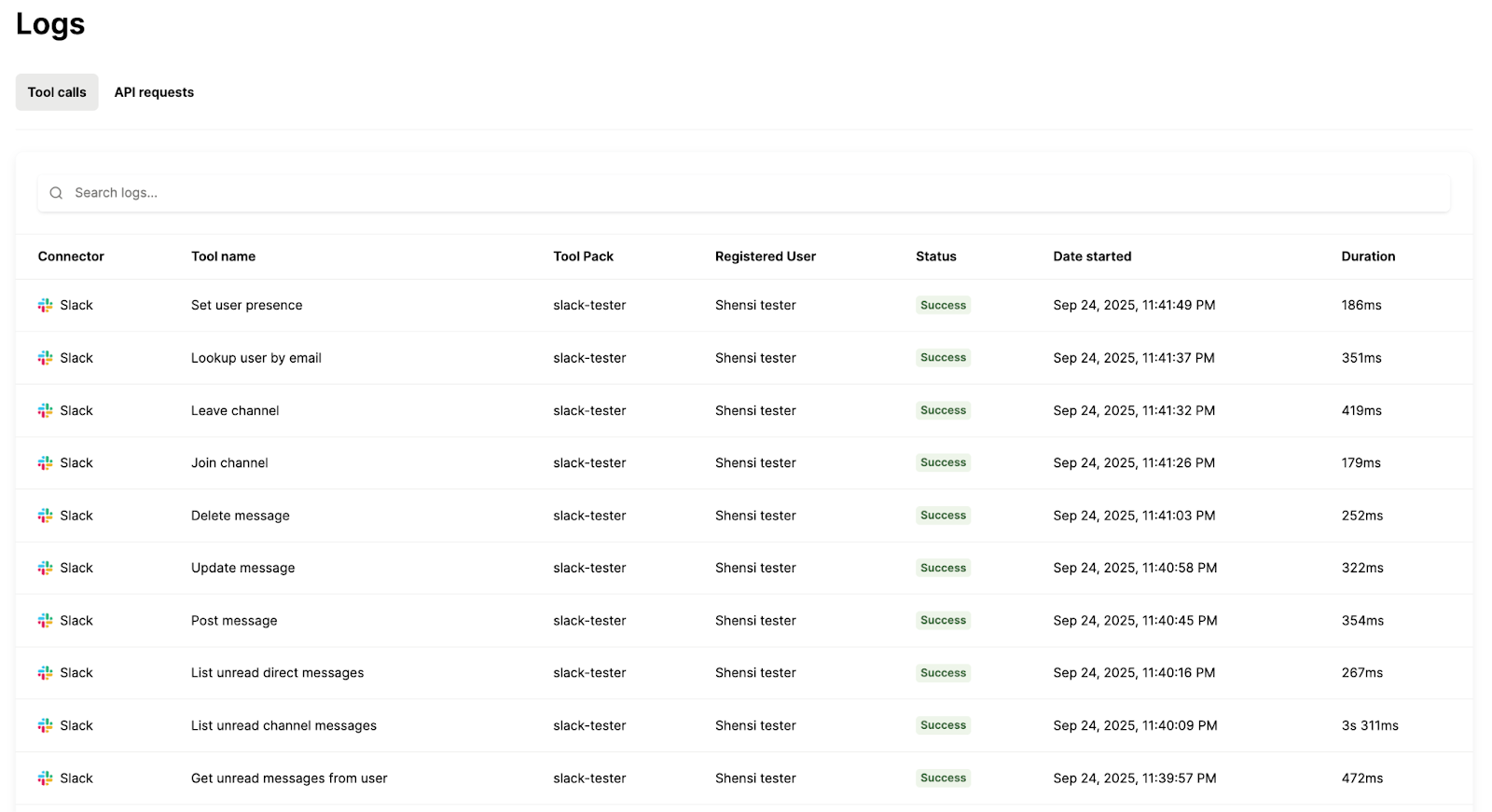
When to choose Merge Agent Handler over Composio:
- Your integration needs extend beyond agents. If you also need to integrate your product(s) with 3rd-party applications, you can leverage Merge Unified, which offers a single, unified API to add hundreds of integrations to your product(s). Composio doesn’t provide a similar solution—let alone any other product
- You need robust observability tooling. While Composio vaguely mentions their agentic observability tooling, Merge Agent Handler has made it a focal point for their platform. Features like fully-searchable logs, customizable alerts, and audit trails allow Merge Agent Handler to comprehensively track your agents’ activities and keep your data secure
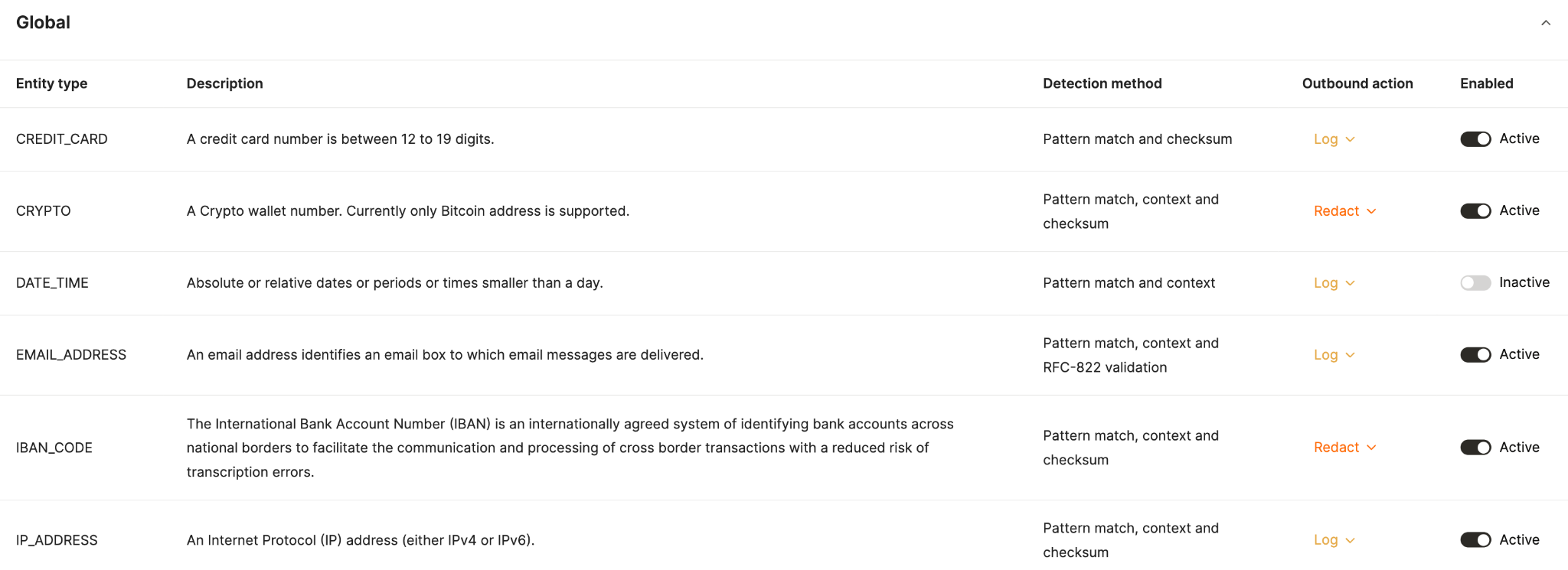
- You want an easy way to modify and customize any tool. Merge’s Connector Studio not only lets you auto generate connectors but also allows you to edit their associated tools with ease, whether it’s a tool’s name, description, or schema. Composio doesn’t offer an intuitive interface for editing a given tool
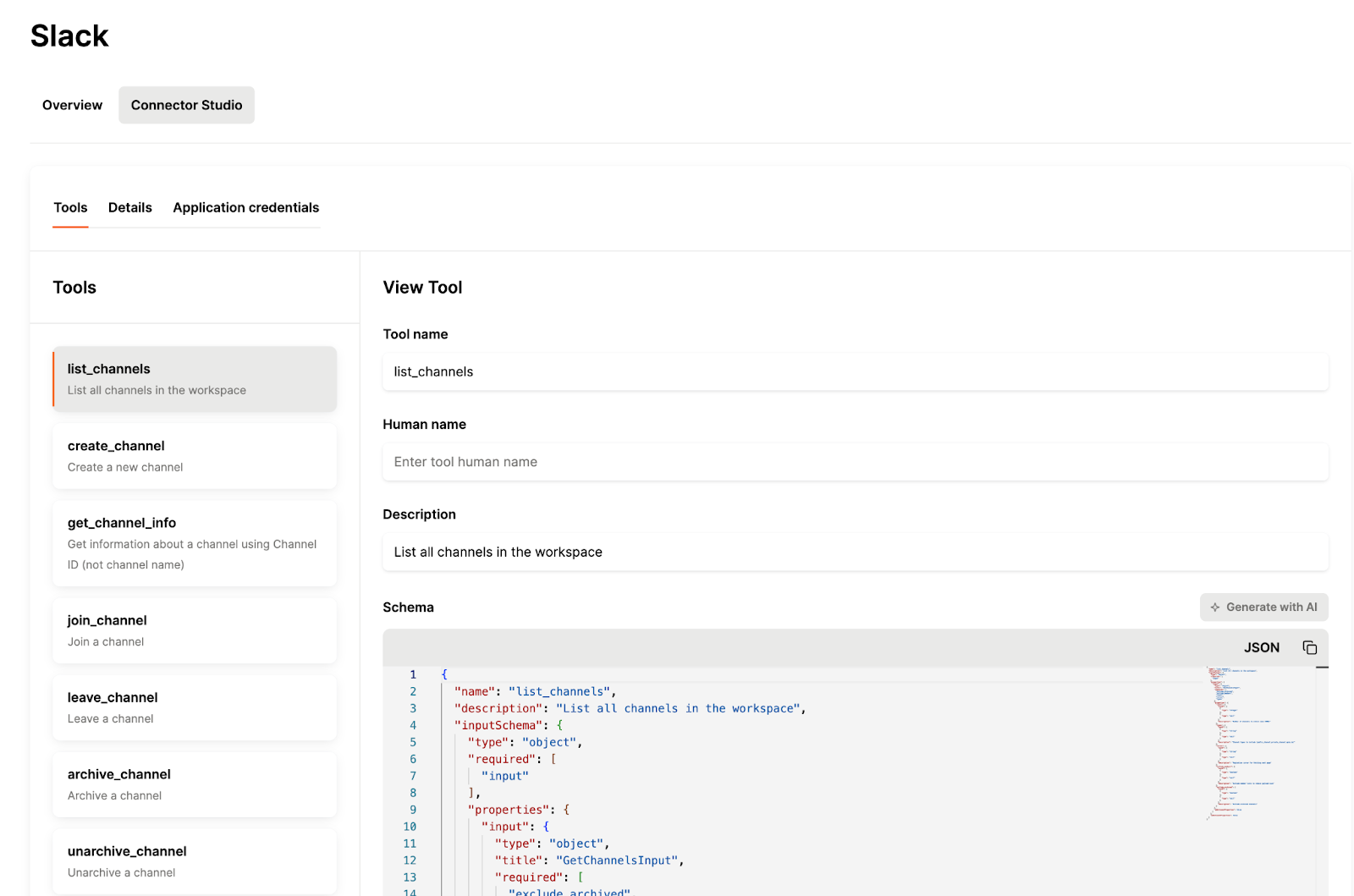
- You’re looking for a streamlined way to test your tool calls. Like Connector Studio, Merge Agent Handler’s Evaluation Suite lets you test any tool in an intuitive UI. These tests can also be highly customized—they can vary by users, connectors, Tool Packs, large language models (LLMs), and prompts.
Composio, on the other hand, forces you to manually test tool calls through SDK scripts, which is much slower, less scalable, and prevents non-engineers from using it
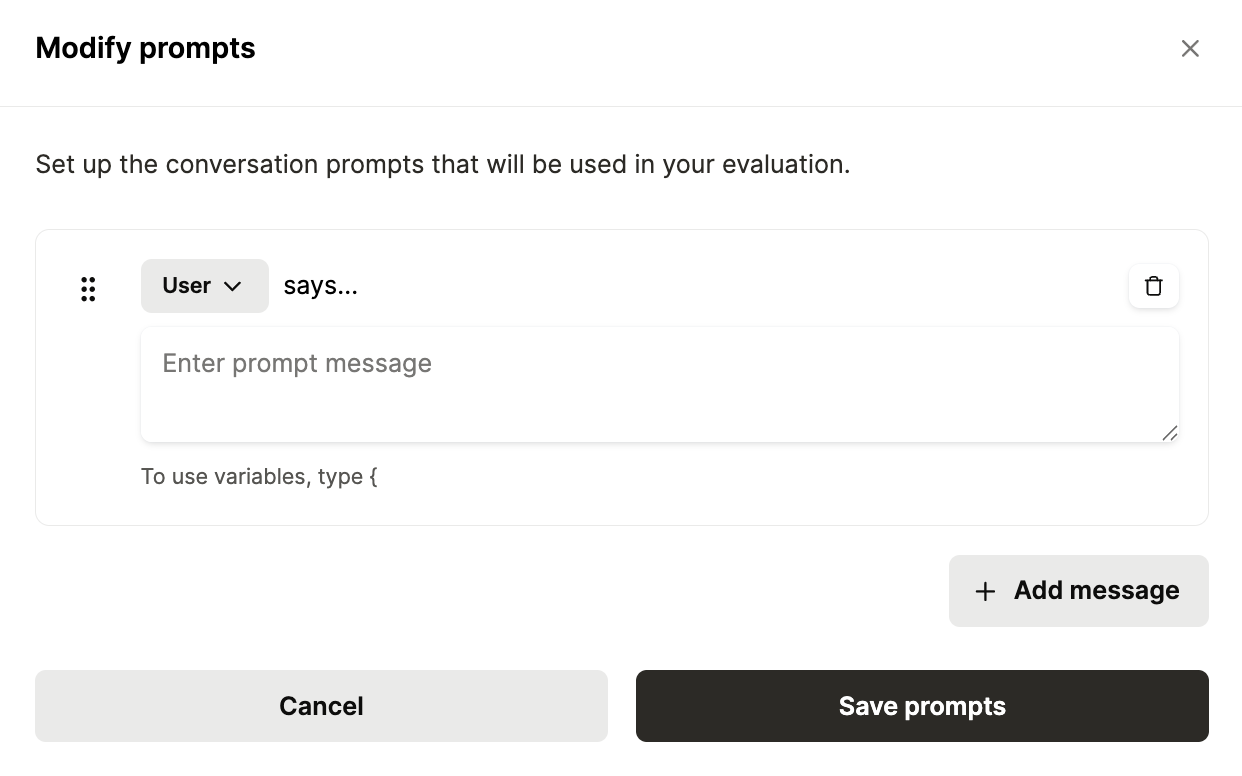
- You'd like a simpler pricing model. Composio's pricing plans include two categories of tool calls, while Merge Agent Handler only uses one. The latter approach makes it easier for you to select the best plan and forecast future costs
{{this-blog-only-cta}}
Arcade
Arcade offers pre-built connectors, a custom tool SDK, and agentic authentication to support a wide range of AI workflows.
- Broad connector coverage: Arcade offers connectors in 9 software categories, including productivity tools, sales platforms, and custom support solutions. These connectors also vary by quality; for example, some are provided by Arcade, while others are delivered and maintained by their community

- Sample AI agents: You can get inspiration on using Arcade and even build your own AI agent relatively quickly by reviewing their sample agents. Each sample includes a GitHub repo so you can review the code the replicate the setup relatively quickly

- Comprehensive testing: Arcade lets you define scenarios with expected tool calls and critics (the judgement criteria). Arcade can then score the results against a rubric, which helps you catch errors and fine tune your agents
When to choose Arcade over Composio:
- You want consistent access to every tool. Arcade provides the same level of access across plans; Composio limits certain integrations behind “Premium Tool Call” restrictions
- You want to access connectors from your peers. Unlike Composio, Arcade offers an open ecosystem for developers to contribute and share new connectors. This can make their connectors more valuable and relevant, and it could lead Arcade to provide significantly more connectors than Composio
- You want to work with a company whose leaders have a stronger background in security and AI. Arcade’s leadership team has a more relevant background to the challenges their platform solves. For example, their founding team has previously helped build authentication products, such as Stormpath (which went on to get acquired by Okta)
Related: The top alternatives to Arcade
Workato
Workato Enterprise MCP lets you expose collections of recipes (predefined workflows in their platform) as MCP servers. For each server, you can also configure metadata, define authentication methods, and manage access controls on a per-user basis.
Top features:
- Hundreds of pre-built MCP servers: This includes everything from data warehouses to document management platforms to HRISs (see snapshot below to get a better idea of the MCP servers they offer)

- Comprehensive audit trails: Workato Enterprise MCP lets admin users see all of the actions taken on your MCP servers, ensuring that potentially harmful activities can be identified and addressed quickly
- Supports Workato’s agentic builder product: Workato Genies let you create, deploy, and manage AI agents that can leverage MCP servers (built via Workato Enterprise MCP) to securely interact with applications and data
Related: The top alternatives to Workato
When to choose Workato over Composio:
- You want an end-to-end agentic solution: Unlike Composio, Workato also provides a no-code environment to develop and deploy agents
- Your developers already use Workato’s other products. Workato’s recipe builder interface is consistent across products; so if your engineers use other Workato solutions, their learning curve for Workato Enterprise MCP will be much faster
- You’re looking for a company that’s well established. Composio is still relatively new (founded in 2023) and has just undergone a series A funding round. Meanwhile, Workato is 10 years older, had a series E funding round several years ago, and has raised hundreds of millions of dollars more than Composio
{{this-blog-only-cta}}



.png)
.jpg)



.png)
